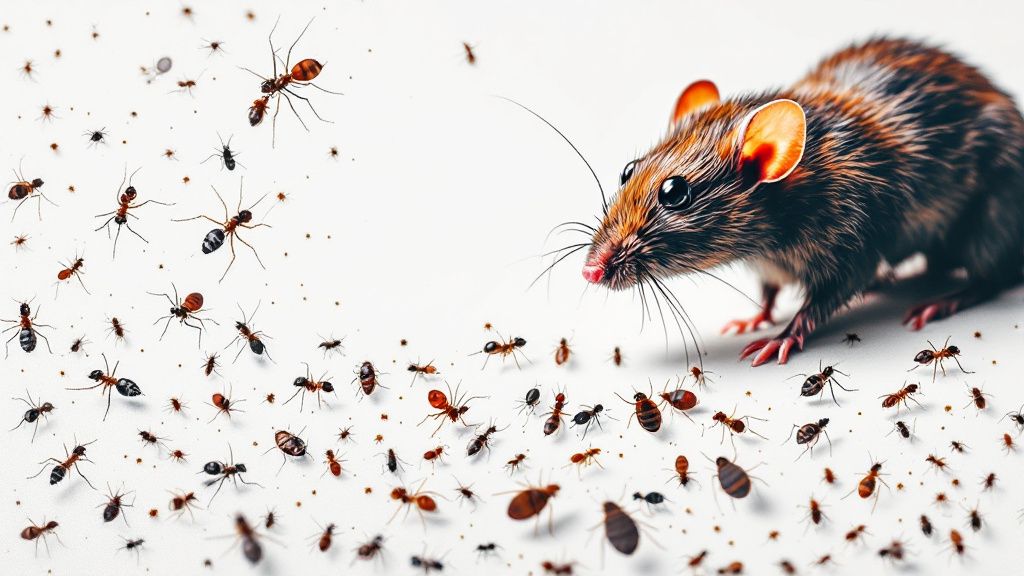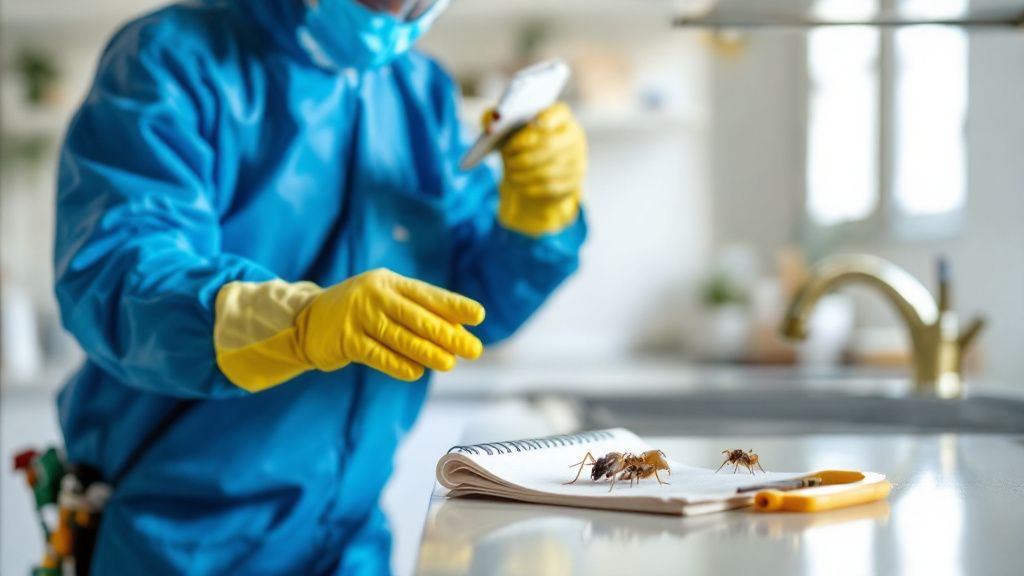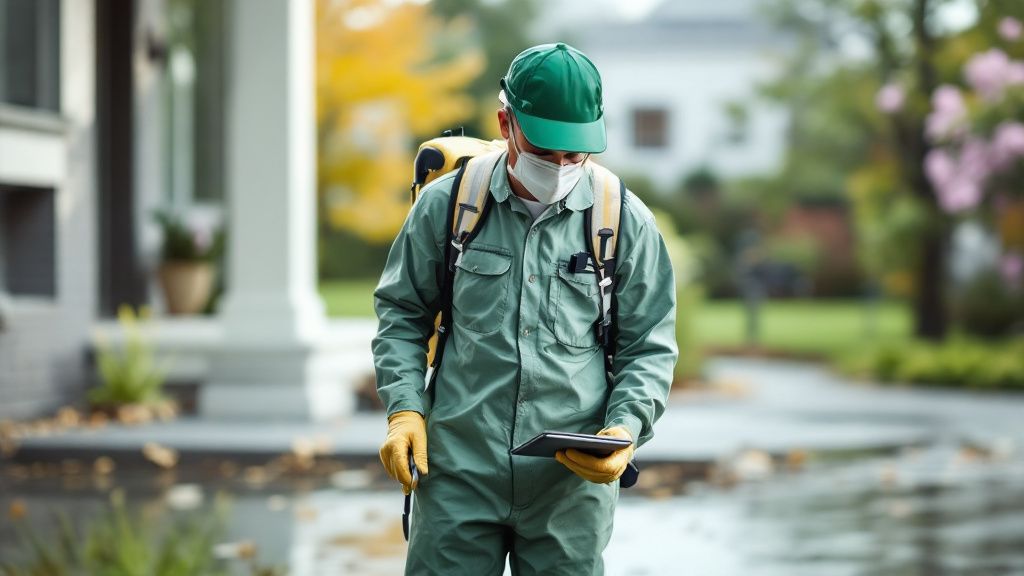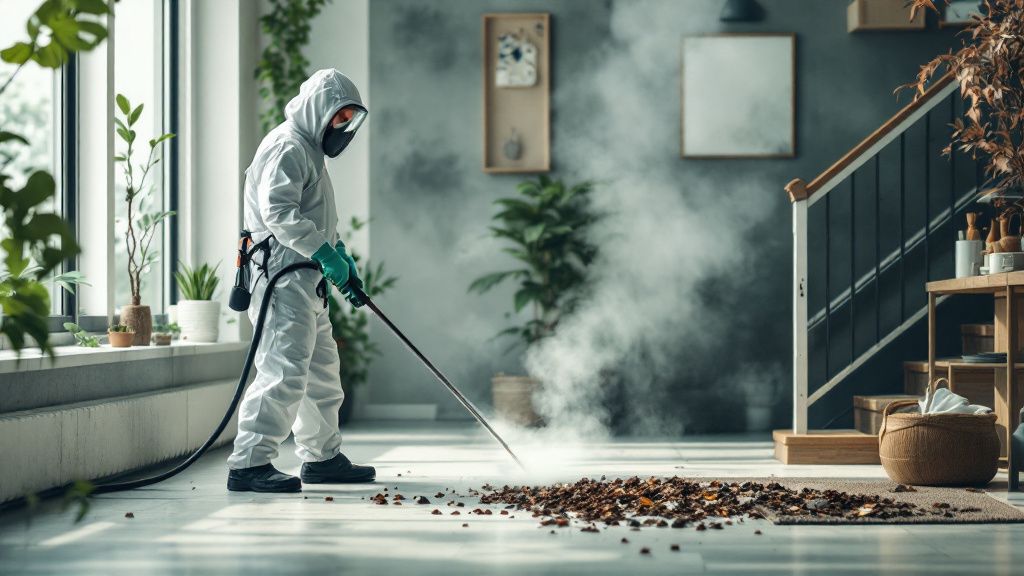Effective Pest Control Strategies for Tennessee Property Managers
Navigating pest control in Tennessee demands a blend of strategic approaches tailored to local challenges. As a property manager, your mission is ensuring your buildings remain pest-free sanctuaries. Start by understanding the unique pest landscape of Tennessee, acknowledging how its climate invites critters like ants, rodents, and cockroaches. Implementing proactive pest management services is essential for maintaining a pristine environment.
Focus on regular inspections and preventative measures to forestall infestations. This involves sealing entry points, maintaining cleanliness, and employing professional pest control Tennessee experts. For rental properties, communicating with tenants about the importance of cleanliness and cooperation in pest control is crucial. Set up a routine to monitor pest activity, adjusting strategies seasonally to address common influxes during warmer months. This systematic approach not only preserves property value but also enhances tenant satisfaction, ensuring long-term success.

Understanding Common Pests in Tennessee Properties
In Tennessee properties, understanding the common pests you encounter is crucial to maintaining a clean and safe environment. Diverse pests like ants, termites, and rodents thrive in Tennessee’s warm and humid climate, which can lead to significant property damage. Addressing these pests requires tailored pest control Tennessee strategies, leveraging local expertise to effectively manage and prevent infestations in various types of properties.
Ants are a persistent issue in many Tennessee properties due to the conducive environment for their colonies. Carpenter ants, in particular, can cause structural damage by burrowing into the wood. Regular inspections and prompt interventions from pest management services help keep these intruders at bay, preserving the integrity of your properties and ensuring tenant satisfaction.
Termites present a significant threat to wooden structures, necessitating vigilant monitoring and treatment. For example, a property manager in Nashville might notice mud tubes along the foundation, indicating a potential termite invasion. Engaging pest control Tennessee experts can assess the severity, providing treatment plans to protect investments and maintain structural safety in your buildings.
Rodents, such as mice and rats, frequently seek shelter in Tennessee homes and rental properties during colder months. They can chew through insulation and wiring, posing both safety risks and costly repairs. Effective pest management services target these pests through exclusion techniques and traps, preventing entry and reducing health hazards in the living spaces under your care.
Cockroaches also thrive in Tennessee’s humid conditions, particularly in urban rental properties. These pests, which can spread diseases, are attracted by food and waste. Maintaining cleanliness, sealing gaps, and employing pest control for rental properties are essential measures to combat this resilience, ensuring environments are kept healthy and appealing for residents.

Preventive Measures for Pest Control
Preventive measures in pest control are vital for maintaining a healthy living environment in Tennessee properties. Start by conducting regular inspections, identifying early signs of pest activity before they become full-blown infestations. Sealing cracks, gaps, and other entry points can prevent pests like rodents and insects from accessing your buildings, thus reducing the chances of an infestation effectively managed by professional pest management services.
Maintaining cleanliness within and around your properties is a key strategy. Ensuring that garbage is disposed of promptly and that food is stored securely helps eliminate attractions for pests. Proper landscaping is another preventive measure—keeping grass trimmed, removing debris, and maintaining water drainage can deter pests from making your property their home. Regular upkeep limits pest presence and keeps properties inviting.
Looking at preventive measures through the lens of seasonal adjustments, you can anticipate and mitigate pest influxes based on the time of year. In Tennessee, spring and summer often see heightened ant and termite activity, while fall and winter may prompt rodents to seek indoor shelter. Preparing for these seasonal shifts with appropriate pest control Tennessee tactics supports long-term management success.
Engagement with tenants in rental properties adds another layer to preventive strategies. Educate them about the importance of maintaining cleanliness and reporting pest sightings promptly. Collaboration between tenants and property managers creates a proactive community against pest invasions, enhancing the efficacy of pest control for rental properties, and fostering a cooperative living atmosphere.

Choosing the Right Pest Control Services
Selecting the right pest control services involves understanding your specific needs and evaluating the qualifications of potential providers. Look for companies with experience in handling the particular pests prevalent in Tennessee. They should offer tailored solutions unique to the properties you manage. Checking references and credentials ensures you choose reliable, effective pest management services that align with your goals and the expectations of tenants.
Consider the technological advancements and methodologies used by service providers. The current state of pest control shows a trend towards integrated pest management (IPM), which emphasizes environmentally-friendly practices and sustainable solutions. This approach not only targets existing infestations but also focuses on prevention, appealing to property managers looking to maintain eco-friendly standards while ensuring effective pest control Tennessee solutions.
Cost and contract terms are crucial when evaluating pest control for rental properties. Balance affordability with service quality, ensuring that the services cover all necessary areas without gaps. A clear understanding of what is included in agreements helps avoid unexpected expenses. Regular communication with the chosen service provider strengthens the partnership, ensuring comprehensive and ongoing pest management that keeps properties well-maintained and tenants content.

Legal Considerations in Pest Management
Navigating the legal landscape of pest management requires understanding both state and federal regulations. In Tennessee, property managers must comply with licensed pesticide applications, ensuring that all treatments abide by safety and environmental standards. Contracts with pest management services should explicitly outline responsibilities and protocols to avoid legal complications, providing clarity for both parties involved.
Disclosure is a significant legal consideration, especially in rental properties. Landlords are required to inform tenants about pest control activities and any health risks involved. While many believe that simple notification suffices, there’s a strong case for detailed communication and cooperation with tenants to ensure transparency and adherence to legal obligations. This approach enhances trust and reduces potential conflicts.
Liability is another crucial legal aspect to be mindful of. Property managers hold responsibility for ensuring pest control tennessee practices do not harm tenants or the environment. Implementing proper documentation and maintaining records of all pest control activities and responses can protect against claims of negligence. Awareness and proactive management in these legal areas contribute significantly to maintaining a compliant and effective pest control strategy.

Tenant Relations and Pest Control Responsibilities
Tenant relations are integral to effective pest control in Tennessee rental properties, requiring clear communication and defined responsibilities. As a property manager, your duty is to ensure that tenants are informed about pest control schedules and protocols. Providing guidance on maintaining cleanliness and reporting pest sightings promptly enhances cooperation and helps maintain a pest-free environment.
One of the challenges in tenant relations is ensuring tenants adhere to cleanliness standards to prevent pest infestations. This issue can be addressed through regular communication and education initiatives, such as workshops or informational leaflets detailing effective cleaning practices and the importance of pest management services. This solution not only increases tenant awareness but also fosters a community vigilant against pest problems.
Collaboration with tenants also involves setting clear expectations in leases regarding pest control responsibilities. Clearly defined roles and shared accountability foster a partnership where both parties actively work towards maintaining a pest-free property. This approach, backed by professional pest control Tennessee services, ensures a harmonious relationship and a healthy living environment that benefits both tenants and property management.

Environmental and Health Implications of Pest Control
Understanding the environmental and health implications of pest control is essential for property management in Tennessee. The use of chemicals, while effective, can have unintended consequences on local ecosystems and human health. Choosing environmentally-friendly pest management services is vital to reducing harm while effectively controlling infestations.
The impact of pest control on human health varies depending on the products used. Certain chemicals can cause respiratory issues or other health problems, particularly in sensitive populations like children or the elderly. What most people don’t see about pest control is the careful assessment and selection of safer alternatives and application methods that make all the difference. This behind-the-scenes insight is crucial for maintaining healthy living environments.
Balancing pest control with environmental considerations involves adopting integrated pest management (IPM) practices, which focus on prevention and use of less toxic methods. This approach emphasizes sustainability, harmonizing the need for effective pest control Tennessee methods with the protection of natural resources. Employing such strategies ensures that pest control measures align with health and ecological standards while safeguarding residents’ well-being.









